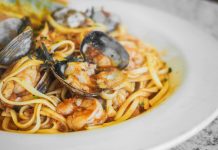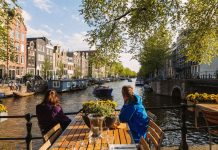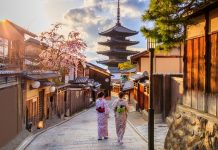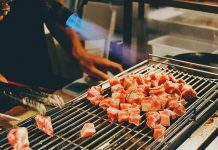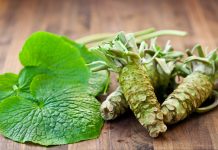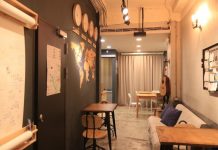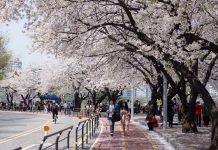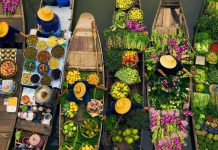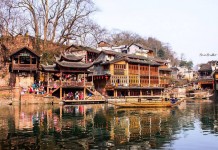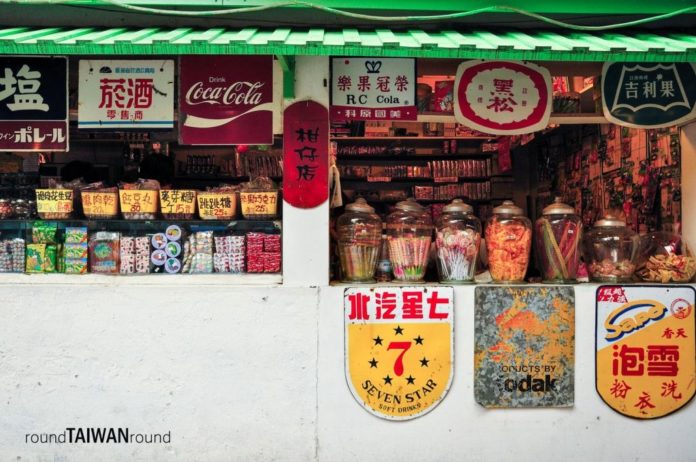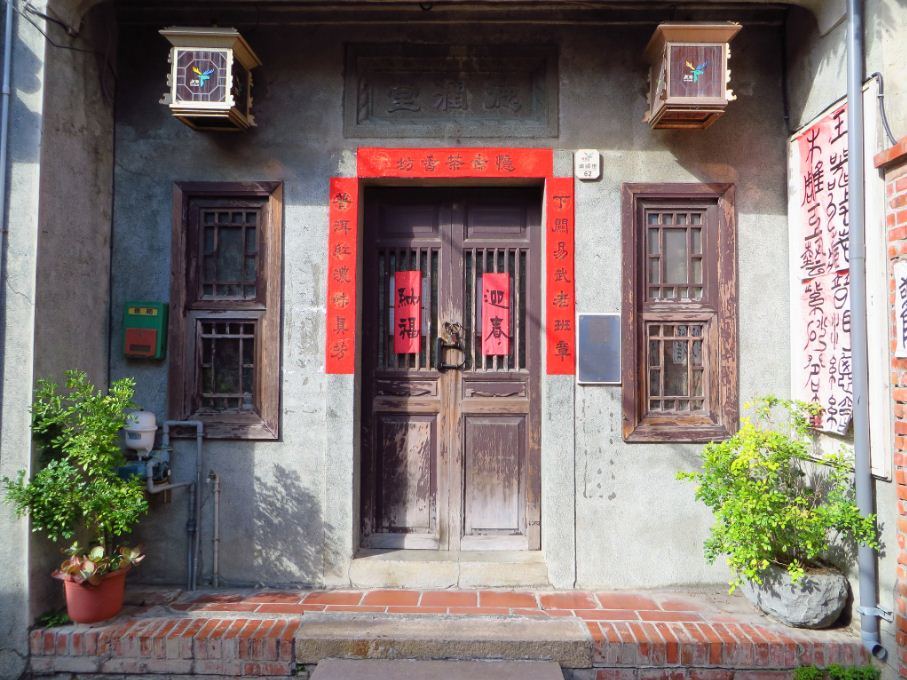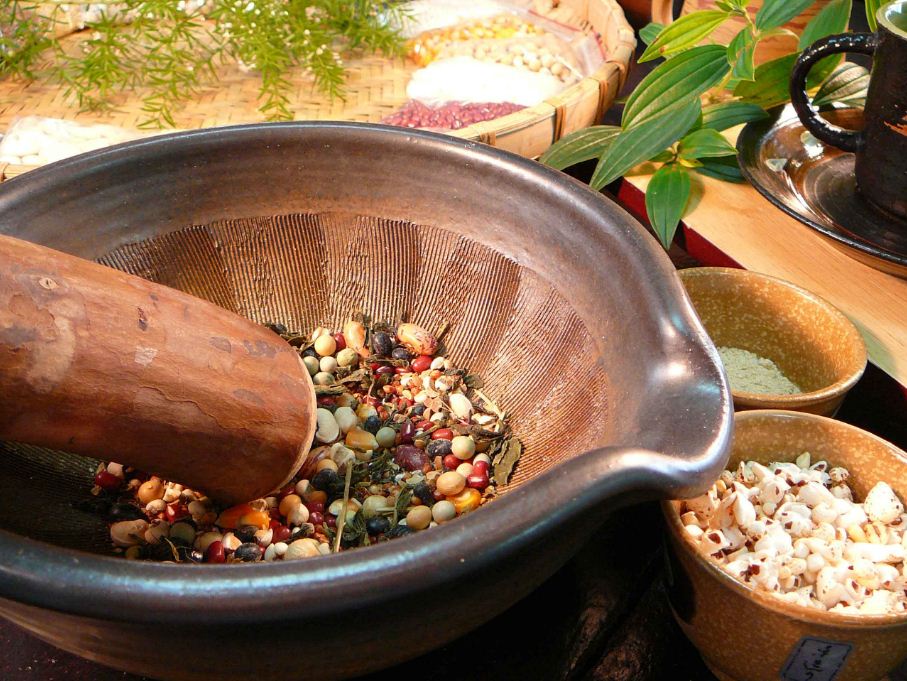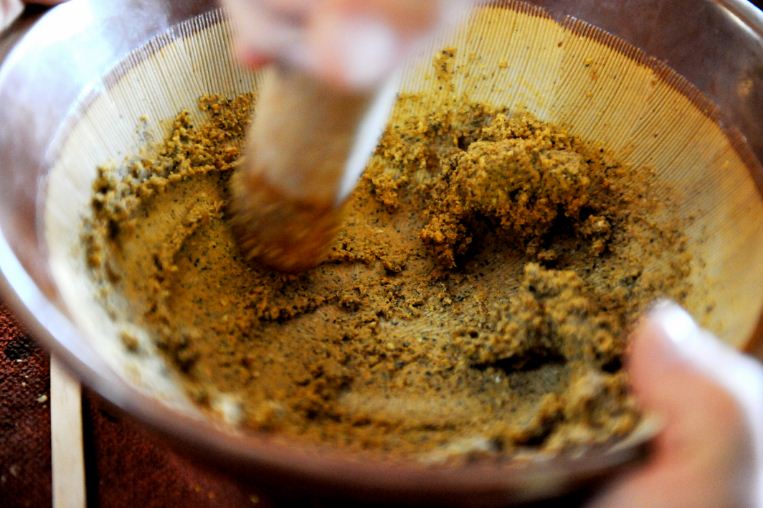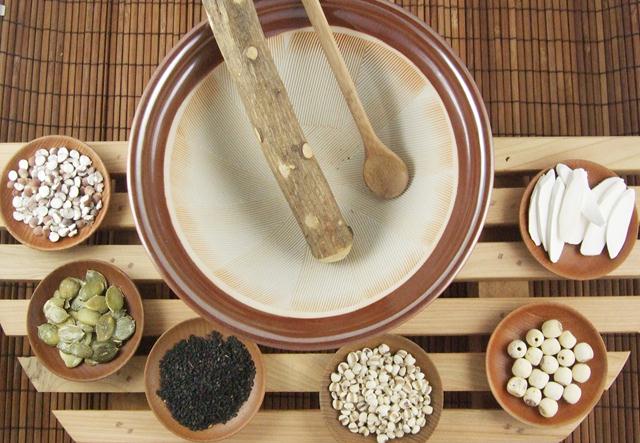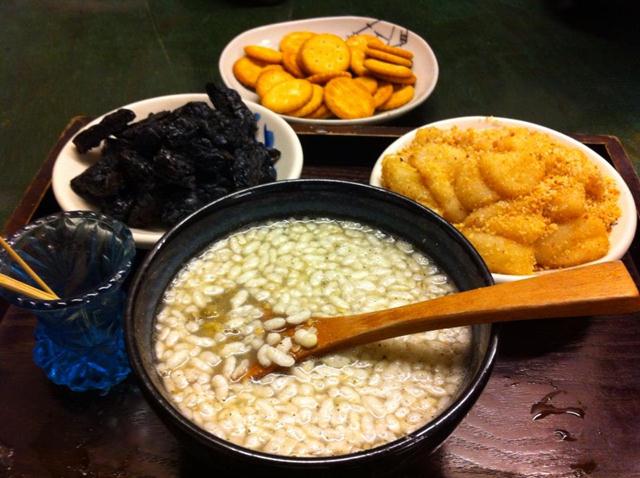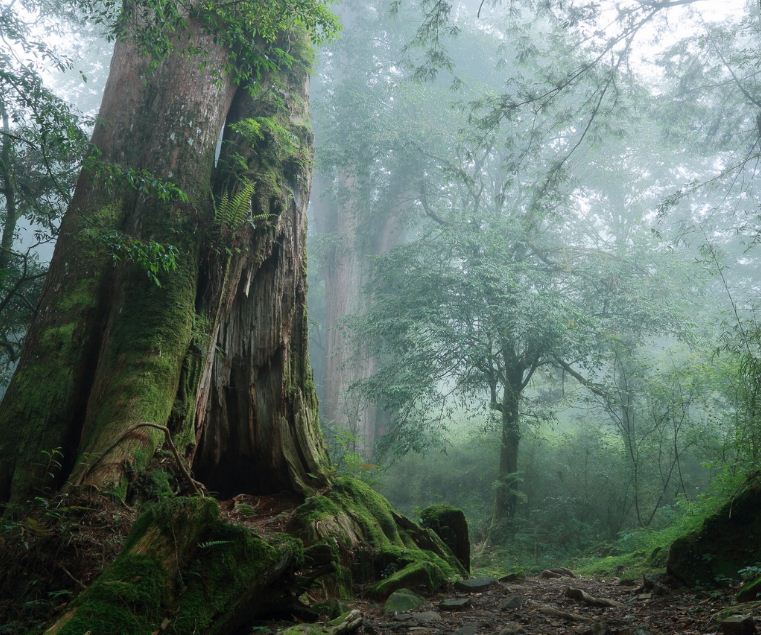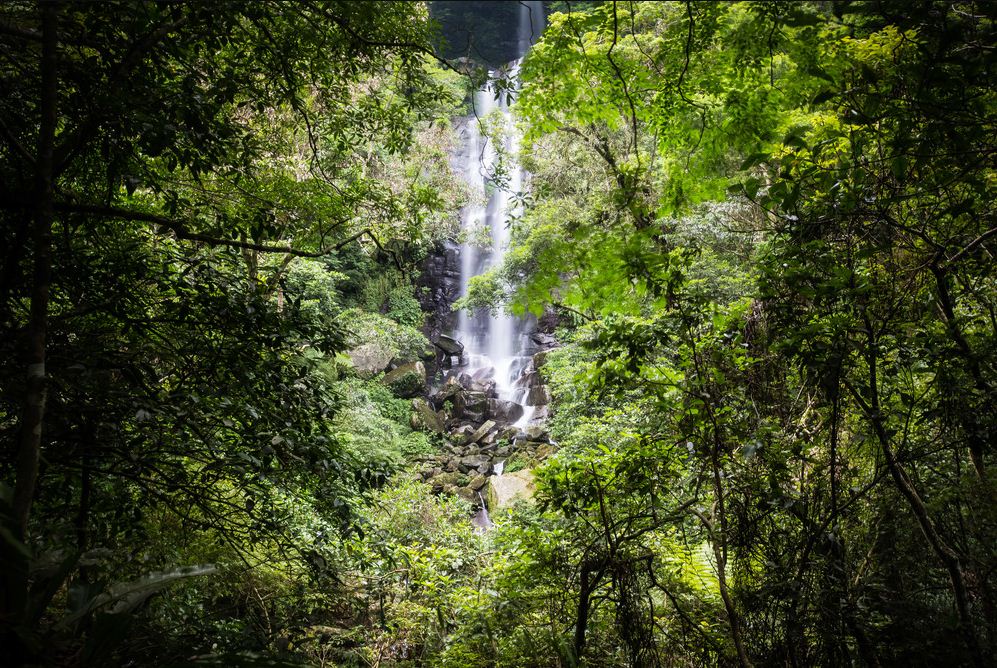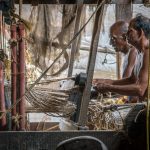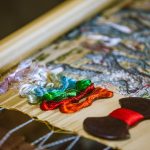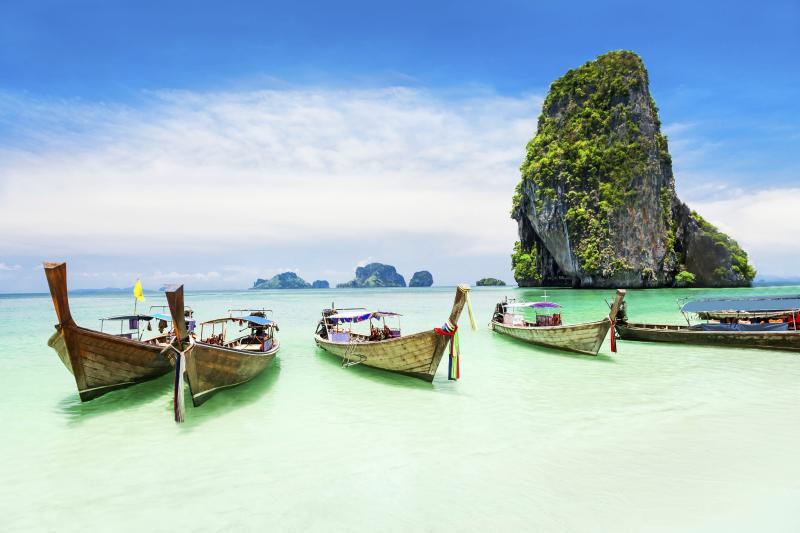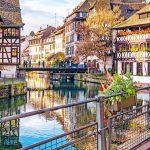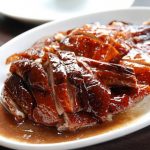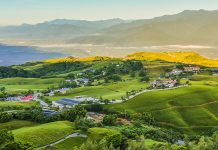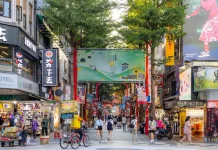Wandering around the Neiwan Old Street, Taiwan which was replete with hometown-style dishes and mountain products, even in a cold and wet day was still such an unexpectedly interesting and pleasant experience. The most amazing way to discover Hakka’s culture to me, however, was not to taste some of the famous delicious local flavor, such as wild ginger lily sticky rice dumplings, or whitebait ball, or vegetable buns. In fact, it was taking a sip of tea in a-few-hundred-year-looking wooden house that proved a perfect introduction to the ancient town.
- Taiwan blog — The fullest Taiwan travel guide first-timers
- Melaka food blog — Experience Melaka delicacies, arrived at by Trishaw
- Zhongxiao Dunhua blog — Top 5 best places to visit & top things to do from eating to shopping
- Where to go in Kaohsiung? — Top 9 must-see & best places to visit in Kaohsiung, Taiwan
- Kaohsiung itinerary 2 days — How to spend 2 days in Kaohsiung, Taiwan?
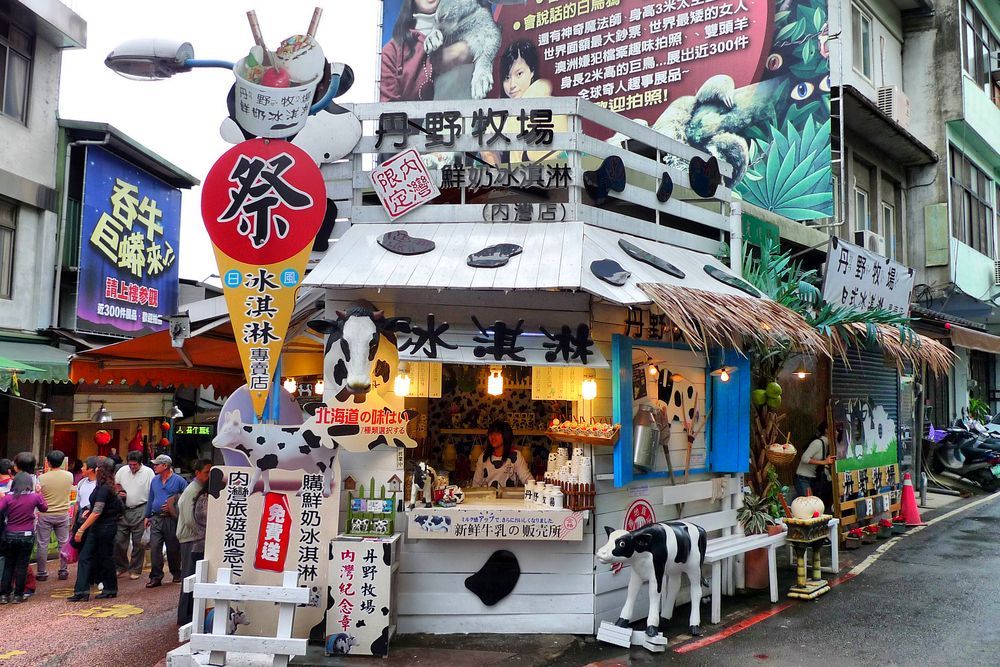
“Why don’t you come in to have a cup of hot tea?”
Probably it was God’s plan to let us visit Hakka town in a rainy day to fully appreciate the hospitality of people over there. Being soaked after taking a walk around the Neiwan Old Street to savour Hakka traditional eateries, we could not resist against the charm of a hot tea cup in an old wooden house staying silently by the street. Stopping in front of the house to have a try of tea, we were kindly welcomed into the house to have a seat since “This sample of tea is cold already. I will have the teapot teamed up again. Why don’t you come in to have a cup of hot tea?” the host said.
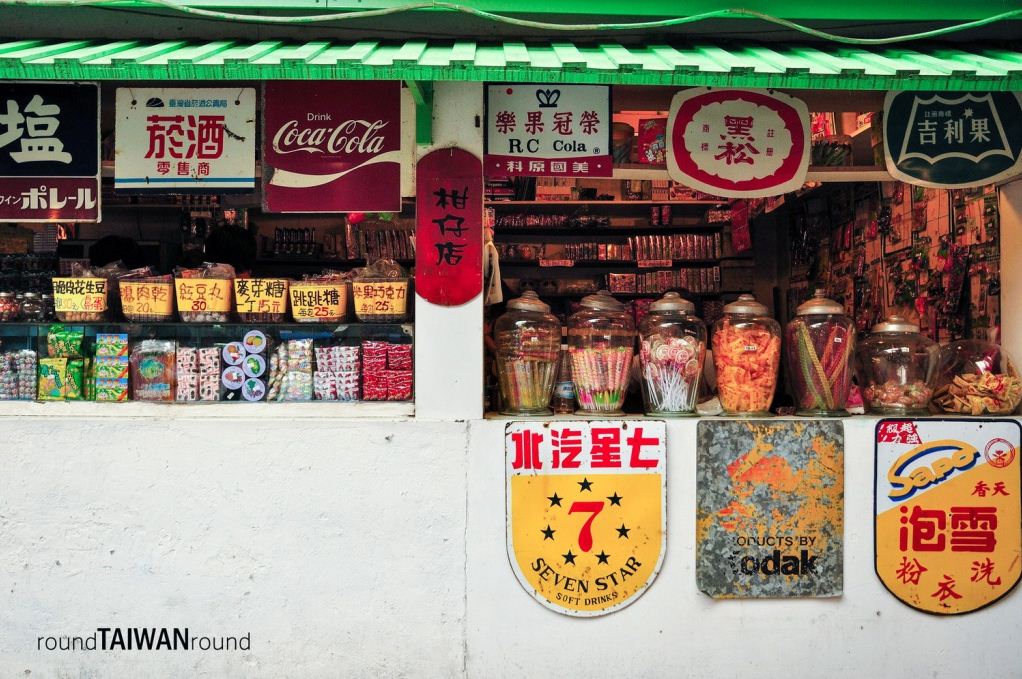
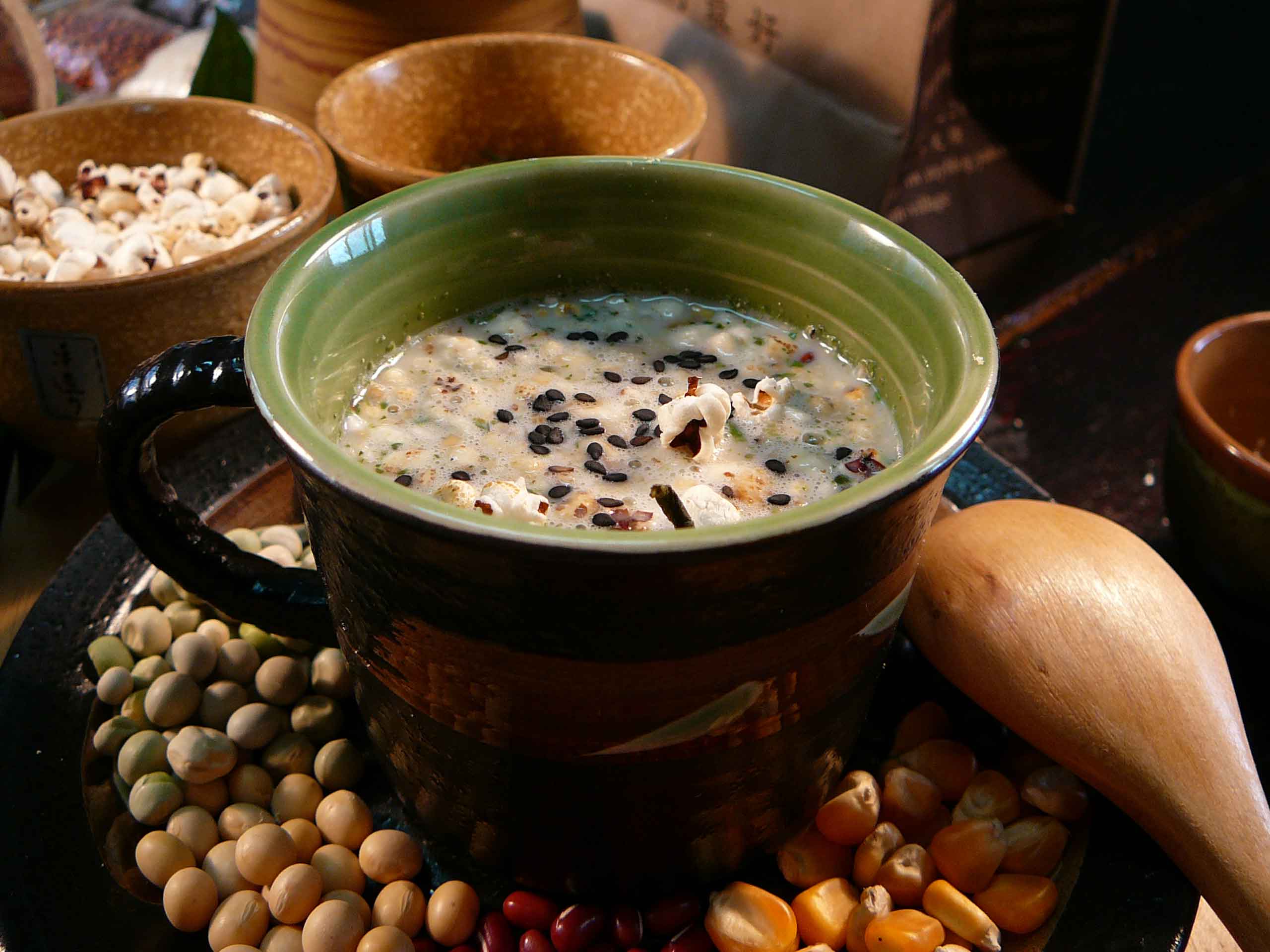
One could tell how good their tea is just by sniffing the unique fragrance of fresh tea lingering in their house. Who could resist against such a charming invitation. And what else could make a person more content than listening to the rhythm of rain dripping outside and wrapping your cold hands around a cup of hot tea in a cozy house? To my surprise, the owners brewed many different kinds of tea for us and told us to enjoy the tea freely as their guests, not as customers.
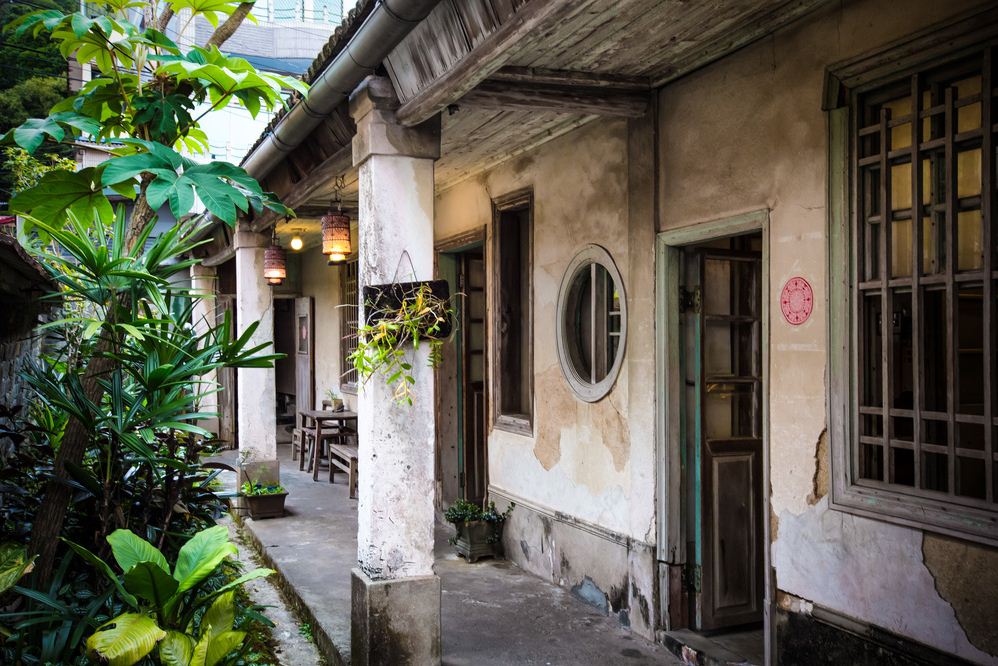
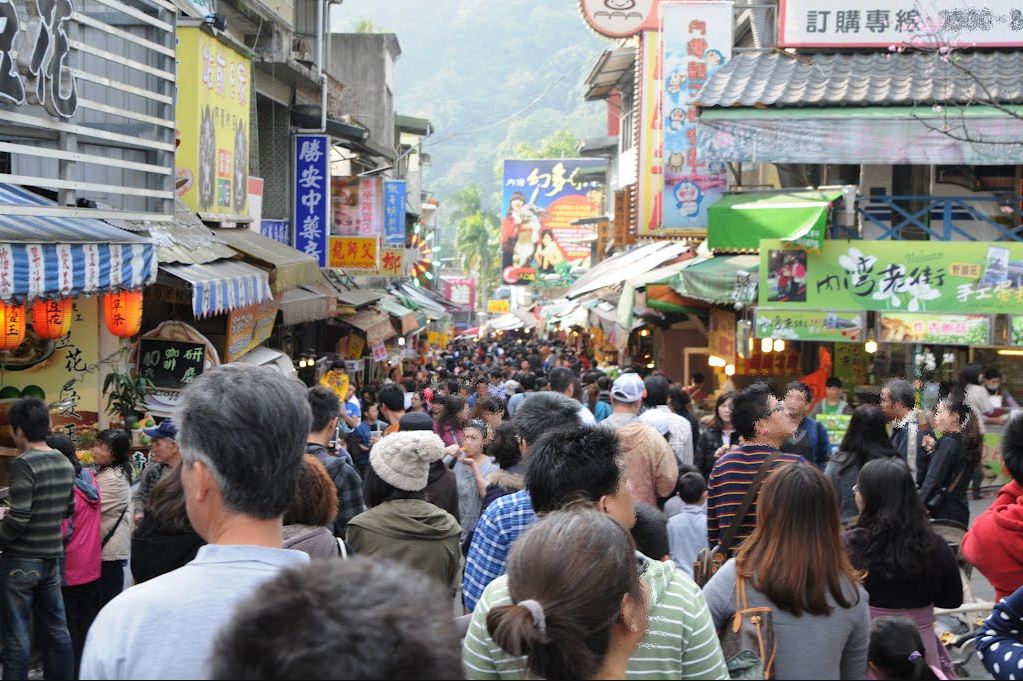
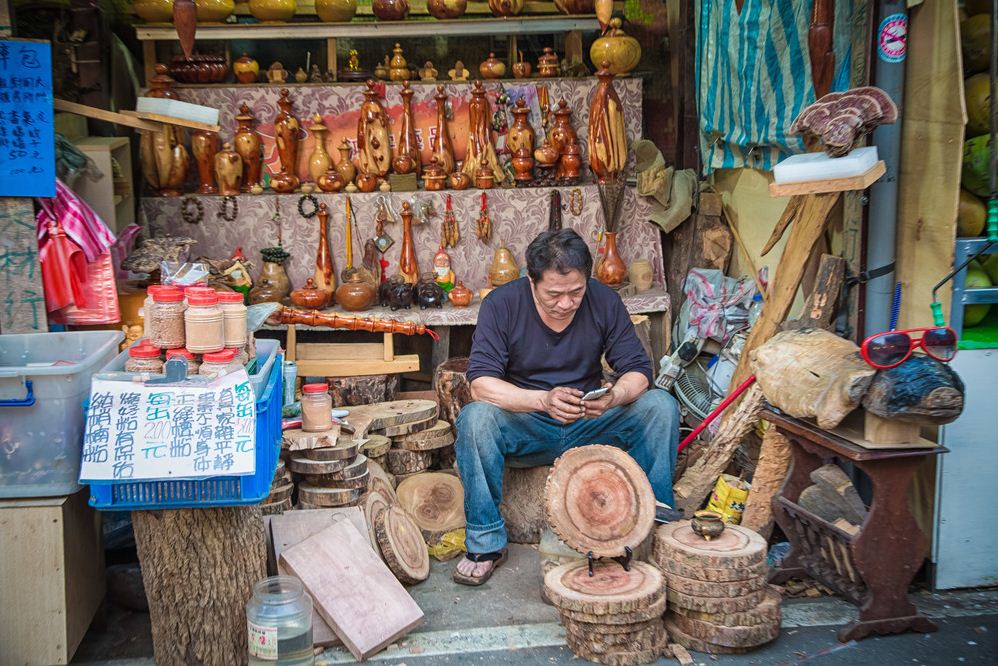
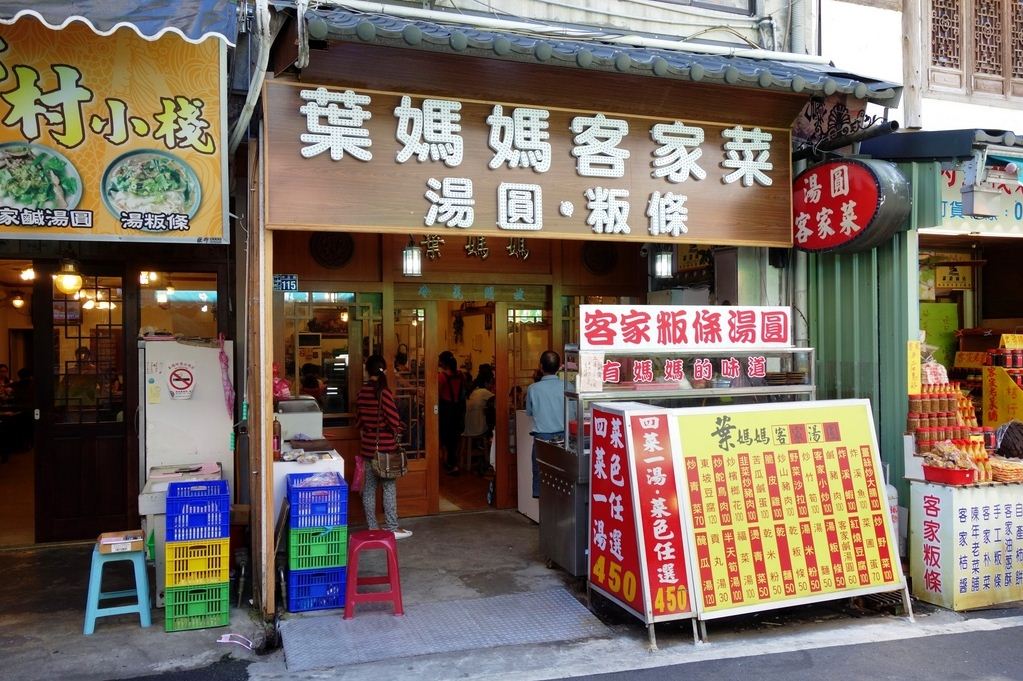
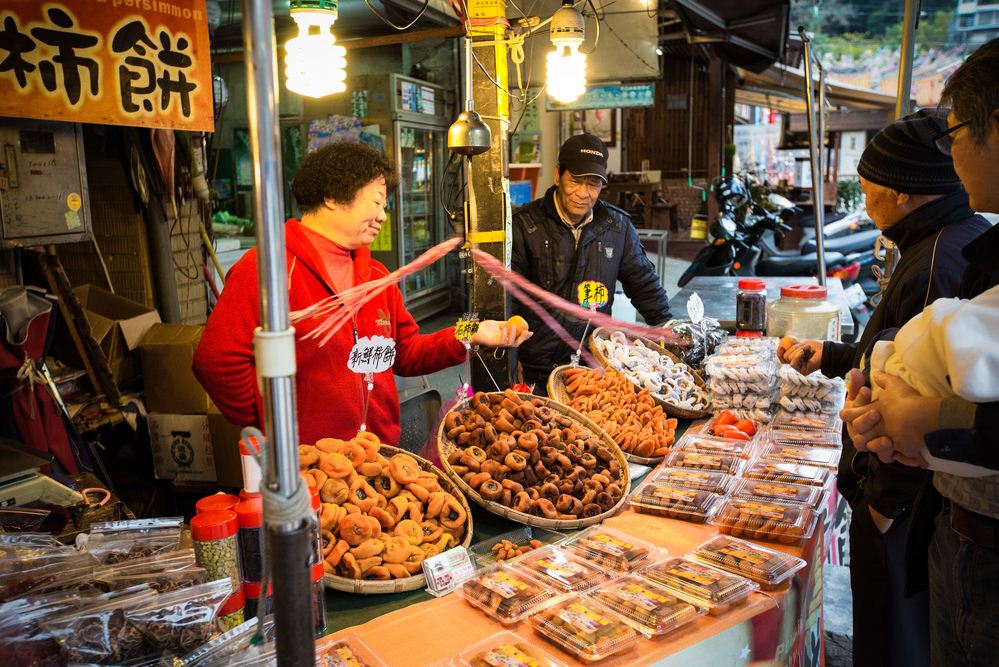
Even though we spoke different languages, but how weird it was when I did not feel like there was any barrier of language. Truly, it was so easy to understand the smiling eyes of the host and his wife or the greeting wave of them… Together we stayed closed to each other for warmth in a rainy day. Sitting in this house made me realize more than ever the fact that we are all brothers and sisters, despite of languages, religions or cultures.
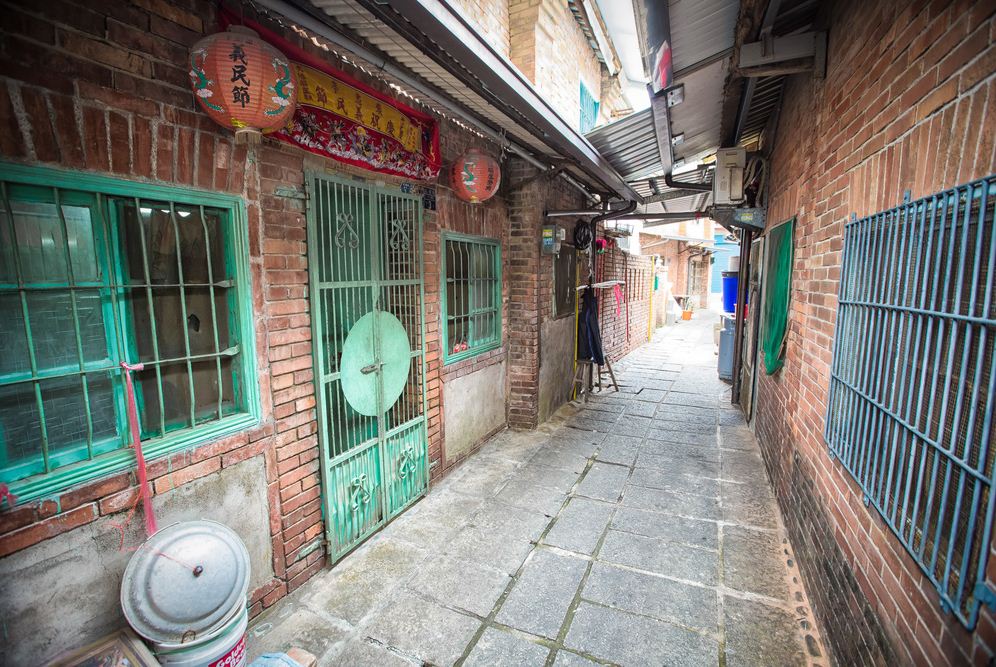
Hakka’s Leicha (Lei Cha): Do not judge a book by its cover
Or should I say do not judge food by its looks. Many people might be taken aback by Leicha’s weird brownish-mixed-greenish porridge-like look. But give it a try, you would then understand why Leicha (Lei Cha) or “grind tea”, which was literally made by grinding its ingredients, became the symbol of Hakka people’s wisdom of life and their hospitality. The tea was more than just a delicious mixture of white rice, herbs, seeds, nuts and grains. It not only made me feel warm and well-fed, but also calmed down the hustles inside my mind, which was probably stirred up by the moody weather in a winter. Truly, it is just so amazing to me that how people in the past could come up with such a genius idea of making a kind of drink that can toss away the tiredness.
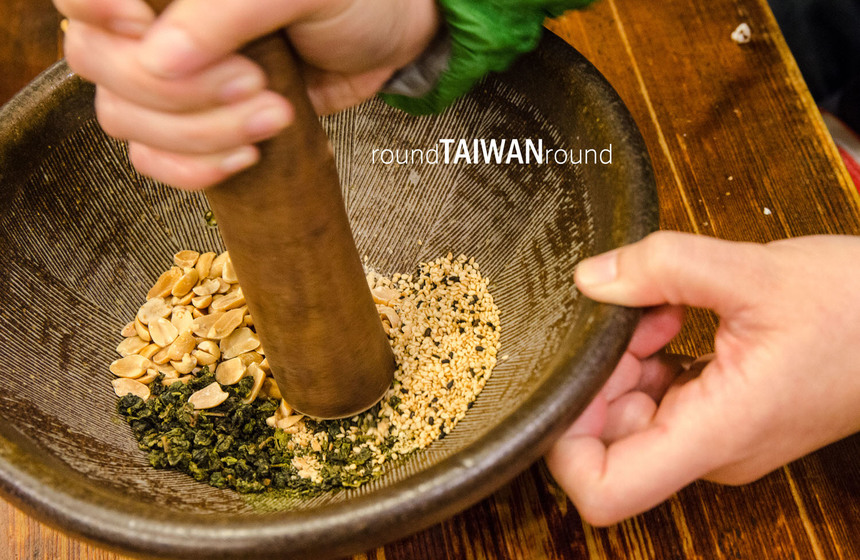
At the moment, I thought I could understand why drinking tea is honored by so many people over the world in general, and over here in particular. Drinking tea is surely Taiwan’s special and captivating tacit charm, which inveigles people who once came here to keep coming again and again.
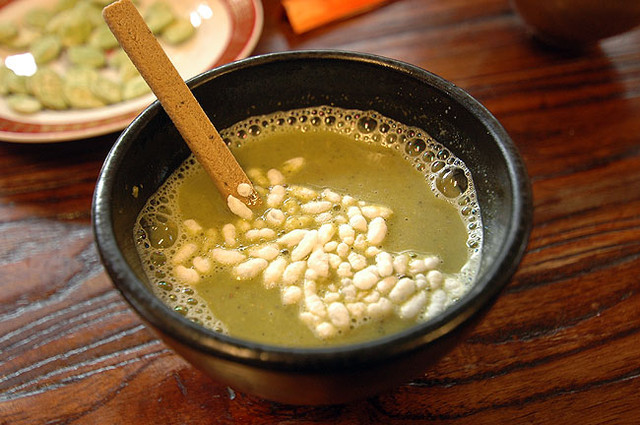
Travelling – It leaves you speechless, then turns you into a storyteller
Crossing the red bridge, I entered the foggy forest behind the village. The fresh fragrance of grass and bamboos was lingering around us. It was such an amazing feeling to just wander around without any purpose, and listen the sound of water drop falling on leaves. The pure colors of grass, flowers and soils after the rain seemed so unrealistic.
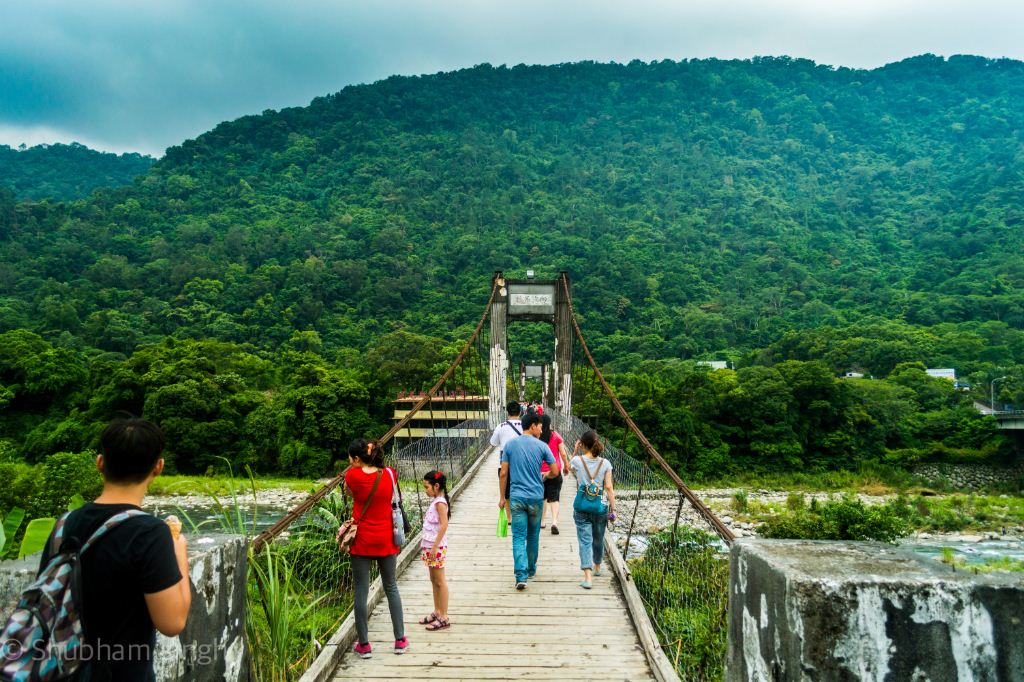
I came back the village to rest at Neiwan Theater before the last train. Back in the 50s, 60s and 70s, Neiwan Theater was the only entertainment center. This giant house remained its special features with Taiwanese old movie posters, cassettes, vinyl players and even old costumes…Don’t be surprised if you may feel as if being in a traditional opera troupe when having dinner here.
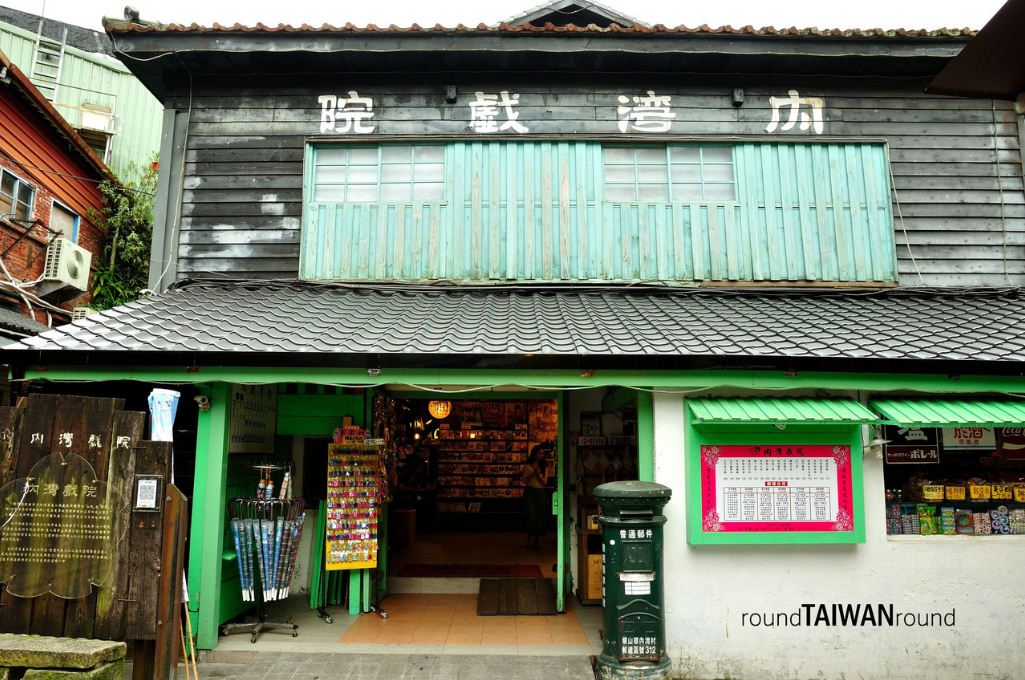
Saying goodbye to Neiwan – the ancient village of Hakka people, we hopped on the train to start a new trip in other places. I felt like I could never get enough of being around this town. From the train, I looked back the whole town, hoped that these beautiful images would be embroided deeply in my memories. Truly, as someone has said: “Travelling – It leaves you speechless, then turns you into a storyteller”.
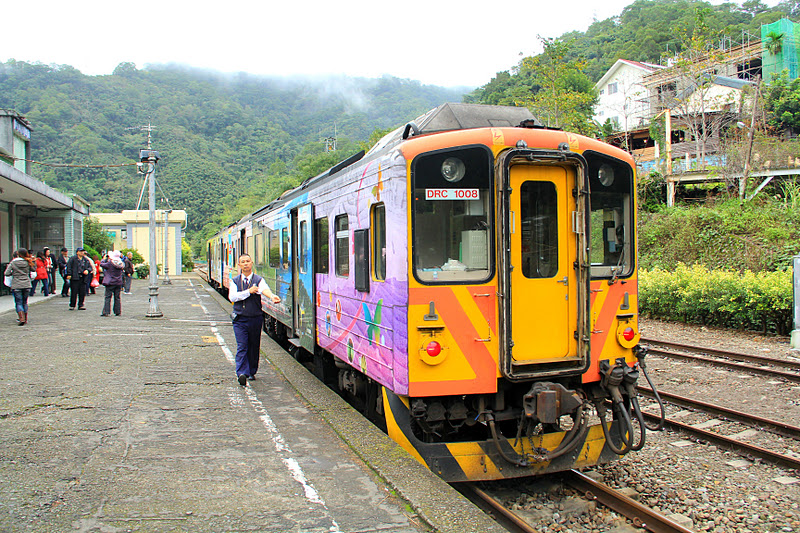
More information
How to get to Neiwan Taiwan
Neiwan Old Street in Hengshan Town, Hsinchu District is located in the outskirts of Taichung City. To get to Neiwan, visitors can choose one of the following means:
+ Public bus or car: Goes directly from Central of Taichung city.
+ Train: It takes two hours from Central of Taichung city.
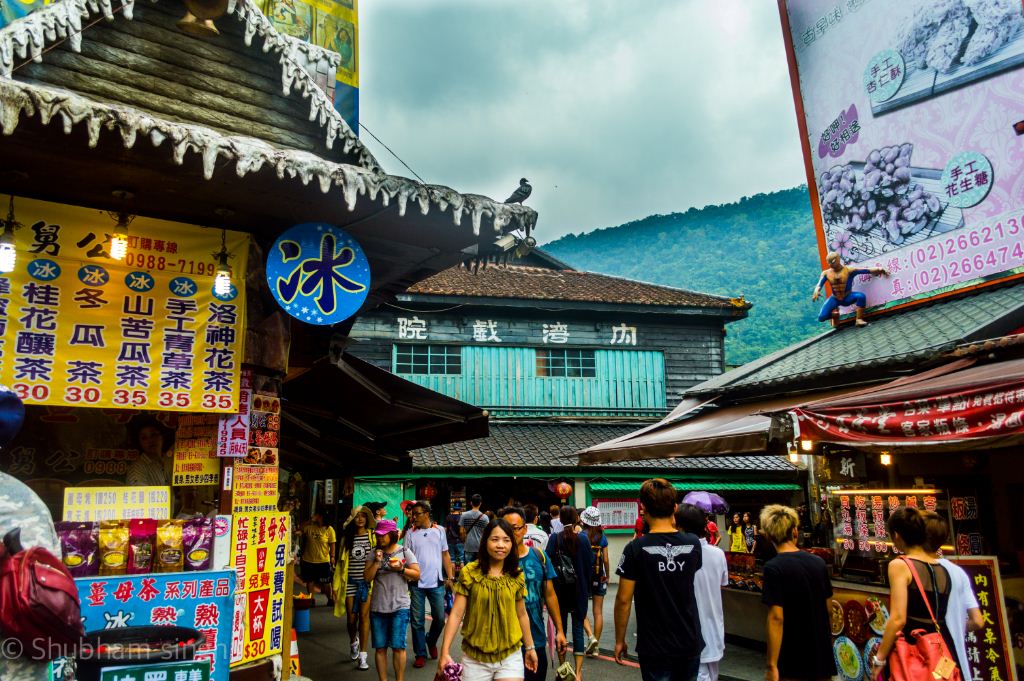
Getting around Neiwan Old Street
+ Walking
+ Hire bicycle
+ Join the trekking
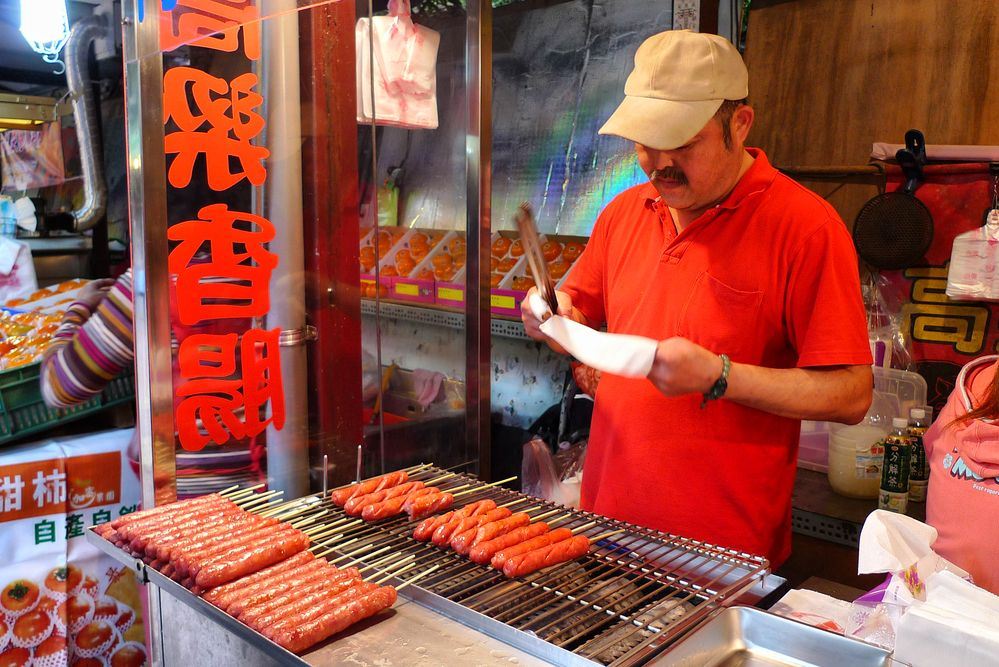
Cuisine
Hakka cuisine is quite rich, from traditional food to fast food, with many small restaurants right on the old town. The cool and fresh ecosystem, and its advantage close to the mountainous region, also offers a wide range of typical dishes from the natural materials of the mountains and forests.

